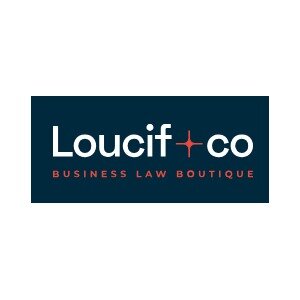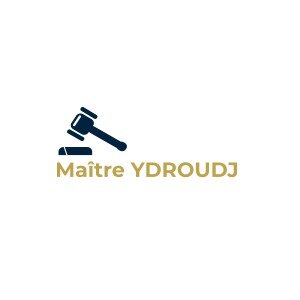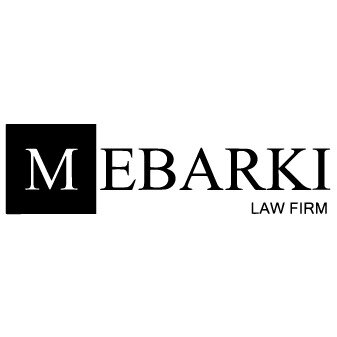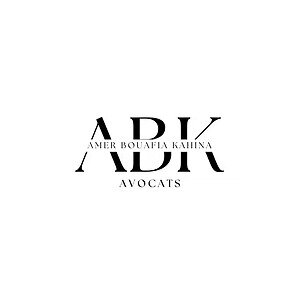Best Corporate & Commercial Lawyers in Algiers
Share your needs with us, get contacted by law firms.
Free. Takes 2 min.
List of the best lawyers in Algiers, Algeria
About Corporate & Commercial Law in Algiers, Algeria
Corporate and commercial law in Algiers, Algeria, governs the formation, operation, and dissolution of businesses as well as the commercial transactions they undertake. This field of law is essential for both local and foreign investors, companies, and entrepreneurs seeking to operate in Algeria's dynamic economic environment. Key aspects include company registration, mergers and acquisitions, contract negotiation, regulatory compliance, and dispute resolution. Algerian corporate and commercial law is influenced by both civil law traditions and relevant international practices.
Why You May Need a Lawyer
There are several common situations where retaining a corporate and commercial lawyer in Algiers may be necessary:
- Starting a new business or expanding an existing one
- Navigating the company registration and licensing process
- Drafting or reviewing contracts with vendors, clients, or business partners
- Mergers, acquisitions, or restructurings
- Handling disputes between shareholders or with third parties
- Dealing with government regulations and compliance requirements
- International trade and investment issues
- Protection of intellectual property rights
- Employment matters relating to company operations
- Securing financing or managing insolvency proceedings
Legal professionals provide invaluable guidance to ensure that business activities stay compliant with Algerian law, reduce risk, and protect assets.
Local Laws Overview
Corporate and commercial law in Algiers, Algeria, is primarily governed by the Algerian Commercial Code, the Civil Code, and several specific laws related to foreign investment, labor, and intellectual property. Here are some important aspects:
- Company Formation: The most common legal entities are the SARL (Société à Responsabilité Limitée - Limited Liability Company) and SPA (Société par Actions - Joint Stock Company). Each has different capital, shareholder, and management requirements.
- Foreign Investment: The National Investment Development Agency (ANDI) oversees foreign investment activities. There are still some sector restrictions and local partnership requirements in certain strategic industries.
- Contracts: Algerian law emphasizes written contracts, especially in commercial dealings. Contract enforcement relies on clear terms and compliance with mandatory local provisions.
- Dispute Resolution: Commercial disputes may be handled by specialized commercial courts. Arbitration is also recognized for certain commercial conflicts.
- Taxation: Corporate and commercial transactions are subject to taxation, including Value Added Tax (VAT), corporate income tax, and customs duties. Proper structuring helps optimize tax efficiency and compliance.
- Employment: The Algerian Labor Code regulates employment contracts, workplace safety, and employee rights. Companies must adhere to detailed local labor regulations.
Keeping up with legal reforms is essential, as Algeria has updated several commercial and investment laws in recent years.
Frequently Asked Questions
What are the main types of business entities in Algeria?
The most common business entities are the SARL (Limited Liability Company), SPA (Joint Stock Company), and SNC (General Partnership). Each has different setup processes, minimum capital requirements, and liability rules.
How long does it take to register a company in Algiers?
On average, it takes two to four weeks to register a company, depending on the business structure and completeness of documentation.
Is foreign ownership allowed in Algerian companies?
Foreign ownership is permitted, but there are limits and sector-specific rules. Some sectors require local partnerships or majority Algerian ownership.
What documents are needed to start a company?
Required documents include identification for all partners, proof of address, draft articles of association, evidence of capital deposit, and requisite government forms.
What are common forms of commercial contracts in Algeria?
Common contracts include sales agreements, supply contracts, distribution agreements, leasing, franchising, and employment contracts.
How are commercial disputes resolved?
Disputes are usually handled by commercial courts. Arbitration and mediation may also be options based on contract terms and mutual agreement.
Are intellectual property rights protected in Algeria?
Yes. Trademarks, patents, and copyrights can be registered with the Algerian Institute of Industrial Property (INAPI) for protection under national law.
Do companies need to follow specific accounting and tax rules?
Yes. Companies must comply with Algerian accounting standards and file taxes, including corporate income tax, VAT, and social contributions.
What should I know about labor laws in Algeria?
Employees are protected by the Labor Code, which covers contract terms, working hours, leave, social security, and termination procedures.
Can I repatriate profits from Algeria?
Profit repatriation is allowed for foreign investors subject to certain conditions, such as compliance with tax regulations and proper documentation.
Additional Resources
For more information or assistance, you can consult the following resources in Algiers:
- National Center of Trade Register (CNRC) - for company registration
- National Investment Development Agency (ANDI) - for investment support and guidance
- Algerian Chamber of Commerce and Industry (CACI) - for business resources and networking
- Algerian Institute of Industrial Property (INAPI) - for intellectual property registration
- Ministry of Finance - for taxation and corporate compliance information
- Bar Association of Algiers - for finding qualified business lawyers
Next Steps
If you require legal assistance in corporate and commercial matters in Algiers, it is important to identify your needs and gather relevant documents in advance. Contact a reputable law firm or qualified lawyer specializing in corporate and commercial law. Consultations can help clarify your options, explain the laws that apply to your case, and develop a strategy that protects your interests. Keeping communication open and ensuring full disclosure of your business objectives will enable your lawyer to serve you effectively and efficiently.
Lawzana helps you find the best lawyers and law firms in Algiers through a curated and pre-screened list of qualified legal professionals. Our platform offers rankings and detailed profiles of attorneys and law firms, allowing you to compare based on practice areas, including Corporate & Commercial, experience, and client feedback.
Each profile includes a description of the firm's areas of practice, client reviews, team members and partners, year of establishment, spoken languages, office locations, contact information, social media presence, and any published articles or resources. Most firms on our platform speak English and are experienced in both local and international legal matters.
Get a quote from top-rated law firms in Algiers, Algeria — quickly, securely, and without unnecessary hassle.
Disclaimer:
The information provided on this page is for general informational purposes only and does not constitute legal advice. While we strive to ensure the accuracy and relevance of the content, legal information may change over time, and interpretations of the law can vary. You should always consult with a qualified legal professional for advice specific to your situation.
We disclaim all liability for actions taken or not taken based on the content of this page. If you believe any information is incorrect or outdated, please contact us, and we will review and update it where appropriate.
Browse corporate & commercial law firms by service in Algiers, Algeria
Algiers, Algeria Attorneys in related practice areas.











